
Suenaga Yoroshiku Onegaishimasu 1 Suenaga Yoroshiku Onegaishimasu Chapter 1 Suenaga
It is a vague expression that is typical of Japanese, meaning "Please do what you think is appropriate within your capabilities," rather than specifically stating what you want to ask for. This way, the other party will not say "No," and the conversation will proceed smoothly.
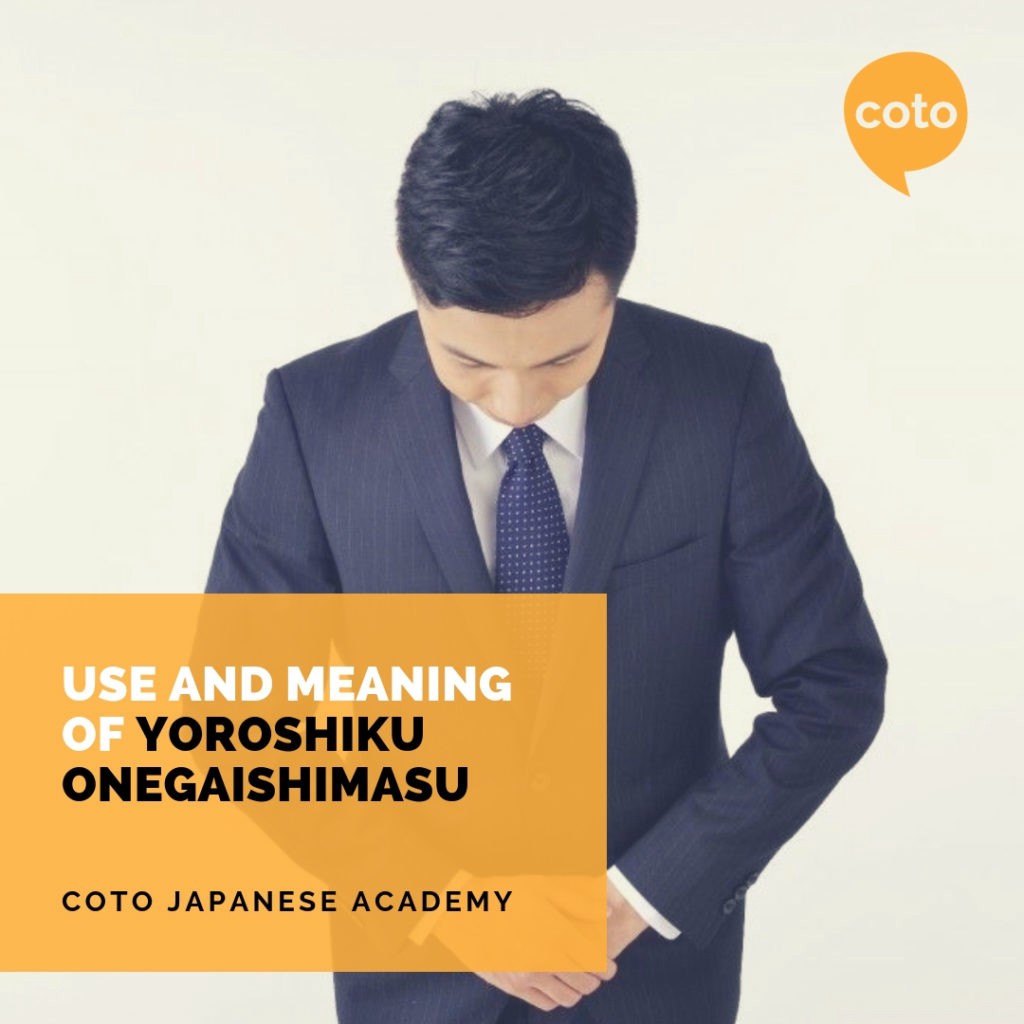
Use and Meaning of よろしくお願いします (Yoroshiku Onegaishimasu) 911 WeKnow
Yo ro shi ku o ne ga I shi ma su Reply. When you translate it directly, yoroshiku means "well" or "favourably", and onegaishimasu is asking for a favor, so the teacher is basically politely asking everyone to be on board so that everything "goes well". I'm aware its a set phrase but translating it from this perspective makes the most sense.

Favorite Japanese word of the month yoroshiku onegaishimasu Parisienne in Tokyo
1. Yoroshiku means "Please!" Yoroshiku, as we learned before , can be used when meeting new people, and means "please be kind to me", or "please look favourably upon me": 初めまして。 フランです。 よろしくお願いします。 "Hajimemashite. Furan desu. Yoroshiku onegaishimasu." Nice to meet you. I'm Fran. Please look favourably upon me! 2. Yoroshiku means "Thank you!"

アイマスまんが 赤西瑛梨華をYO・RO・SHI・KU☆ / テツジロー ニコニコ静画 (マンガ)
3. Dozo yoroshiku onegaishimasu (Pronunciation: doh-zoh yorosh-ku o-neh-guy-shimass) Meaning: This phrase literal means "Please take care of me", but can be translated as "Pleased to meet you" in this situation. There is no direct equivalent for this phrase in English, which is one of the attractions of the Japanese language.
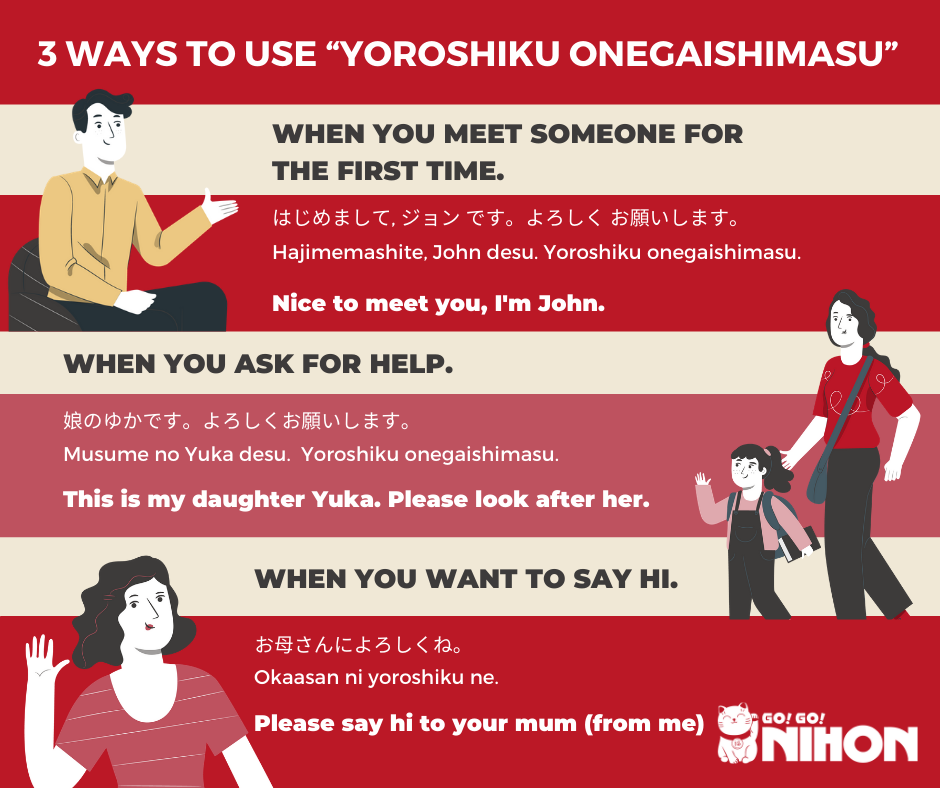
When and how to use “yoroshiku onegaishimasu” Go! Go! Nihon
This is a very polite way of asking for something and is usually for formal requests or when talking to a person of higher social standing. For example, take a look at this example sentence, which could be used in a business situation. Examples: 1. プロジェクトにご協力いただけますよう、ご検討をよろしくお願いします。

How to pronounce 'Yoroshiku onegaishimasu' (Please treat me well) in Japanese?Japanese
"Yoroshii" is an adjective that can be considered a formal word of 良い (yoi or ii). "Yoroshii" has various meanings, including "okay," "all right," or "good. It is often used when asking for permission to do something. See the example below. このコップを使ってもいいですか? (kono koppu wo tsukattemo ii desu ka?) このコップを使ってもよろしいですか?

yoroshiku onegaishimasu YouTube
Updated on February 24, 2020. Both kudasai (ください)and onegaishimasu (お願いします) are Japanese words used when making a request for items. In many cases, these two Japanese words, which translate roughly as "please" or "please give me," are interchangeable. However, there are nuances associated with each word giving each a.
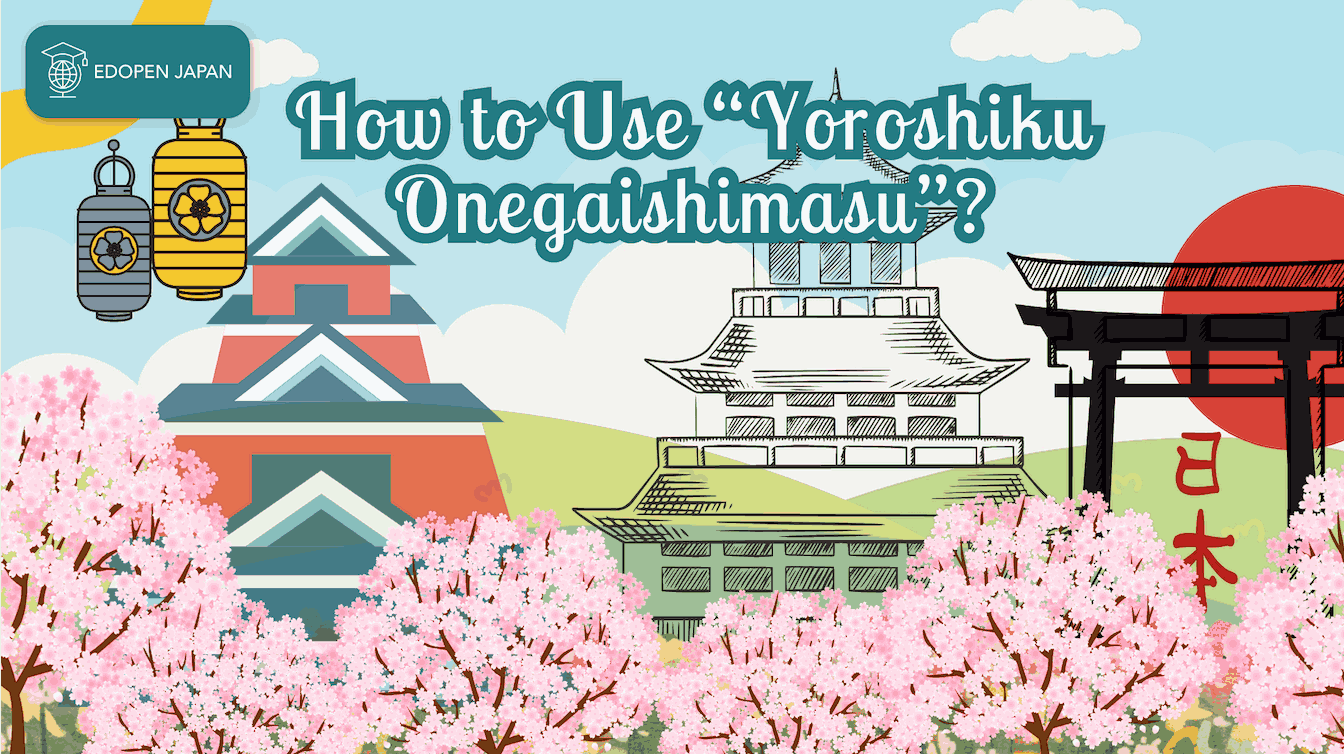
How to Use “Yoroshiku Onegaishimasu”? EDOPEN Japan
Various meanings "Yoroshiku" on its own means "please treat me favourably" or "please take care of me", while "onegaishimasu" is keigo, or the formal word, for "please". Together, "yoroshiku onegaishimasu" doesn't have a direct translation.
ゾンビランドサガ YO RO SHI KU 檸檬蜂蜜のイラスト pixiv
Yoroshiku onegaishimasu is also often used as a substitute for hajimemashite when first meeting someone. What it basically means is, 'Please treat me kindly.' Yoroshiku is actually a form of the word yoroshii (よろしい), a more polite form of ii (良い), which means 'good,' 'okay,' 'fine,' or 'well.' When to use yoroshiku onegaishimasu
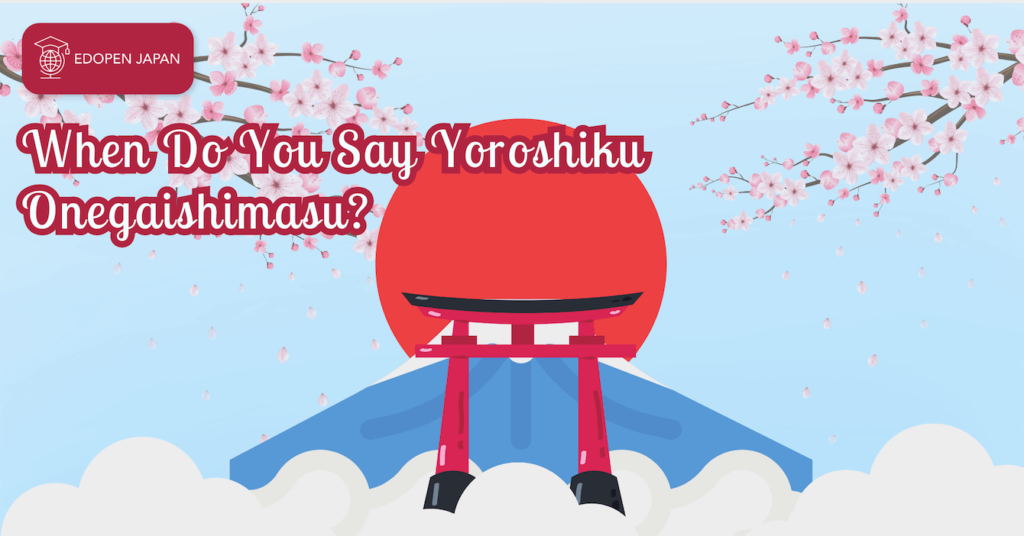
How to Use “Yoroshiku Onegaishimasu”? EDOPEN Japan
Yoroshiku onegai shimasu. ==>Here is my son, Satoshi. Please take care of him. or Please watch over him. 4) This phrase is also used at the end of your email or letters. Yoroshiku onegaishimasu = "Best Regards" or "Thank you" at the end of the email, or letters, 5) When you introduce yourself at workplace.

Suenaga Yoroshiku Onegaishimasu 1 Suenaga Yoroshiku Onegaishimasu Chapter 1 Suenaga
No. 1 Nice to meet you. This is probably the most well-known usage for Japanese learners. When introducing your self, you would say, はじめまして。 ____です。 どうぞよろしくおねがいします。 Hajimemashite, __ (your name)__desu. Douzo yoroshiku onegaishimasu. Nice to meet you. I'm ________. Nice to meet you (!?!?!?)

3 ways to use Yoroshiku onegaishimasu Japanese language lessons, Learn japanese words
初めまして This word includes the kanji 初 ( sho) followed by hiragana characters. 初 is made up of two radicals 礻 ( shi) and 刀 ( tō ). 礻 on its own means "showing," and 刀 means "sword; blade." (刀 is also pronounced " katana " when referring to the martial arts weapon.) Put 礻 and 刀 together, and you get 初, which means "first time; beginning." 礻 + 刀 = 初

When and how to use “yoroshiku onegaishimasu” Go! Go! Nihon
"Please help me" "Please take care of me" "Nice to meet you" "Yoroshiku" This is pretty much the same thing as yoroshiku onegaishimasu, but it's not as formal. If you're not sure whether or not it's okay to use yoroshiku on its own, you should probably just use yoroshiku onegaishimasu. It means the same things as what's above.

Suenagaku Yoroshiku Onegaishimasu Vol. 2
Here there's a nice explanation, but I'll quote it here for easy reference, with some additional info:. ください and お願いします are both used when making a request. ください (kudasai) is used: After the particle "o" を, for example when ordering food: "水をください" (Mizu o kudasai - Please, water.When asking something that involves an action, along with the verb in the.
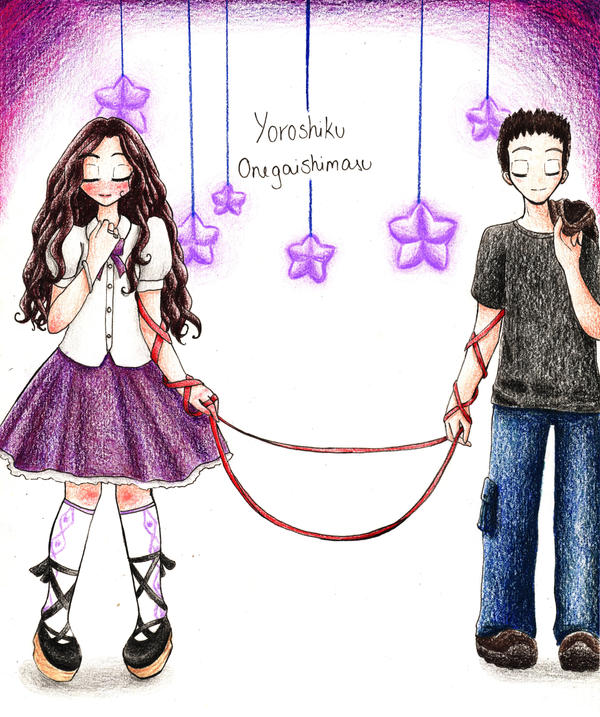
Yoroshiku Onegaishimasu
Yoroshiku-onegaishimasu (pronounced yo-ro-she-ku — oh-neh-guy-she-mäs) Yoroshiku-onegaishimasu is used when you first meet a person. It expresses "please and thank you" for any and all future give-and-take interactions, and it is accompanied with a bow. There is the understanding that one will inevitably ask a favor of the other and vice versa.

Yoroshiku onegaishimasu is one of those quintessential Japanese words that is highly ingrained
Thank you.". Meaning of " Yoroshiku Onegaishimasu " It would be greatly appreciated if you would follow my request. You can be " It would be greatly appreciated " by giving me a favor simply by saying, "Yoroshiku Onegaishimasu". The other party, therefore, is being asked to "get rid of". For example, "ご確認のほど.